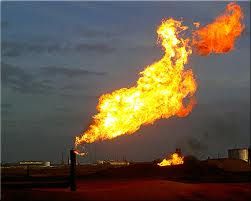
Rich enough to buy a Bentley on a whim or poor enough to be set back by a simple traffic fine, Americans are angry about gas prices. That anger has a long list of targets
-- oil companies, politicians, speculators, foreign oil producing countries, local station owners. This upsurge of emotion, though, is about much more than money.
Not that the money doesn't matter to the swollen ranks of the working poor and jobless. 1 in 3 American families now fit the category of the working poor; add discouraged workers to job seekers and the unemployment rate bloats to 22%. For these many, the extra gas dollars it takes to get to a job or interview may be all it takes to make everything fall apart.
But why do gas prices make America's wealthier minority just as mad? After all, according to the AAA, the cost of driving overall rose 3.4 percent last year, less than health care or college costs increased. The group estimated gas represented just 18% of the annual cost to drive the average sedan 10,000 miles and 23% of the cost to drive it 15,000 miles. Gas prices have gone up since, of course, boosting annual fuel costs to $2400 for 15K milers; nevertheless, this number is dwarfed by $4300 in depreciation and financing costs. And gas is one of the few car expenses we have some control over -- we can drive a bit less to save money, but a parked car still quietly depreciates, still siphons dollars to lender and insurer.
On the other hand, it makes sense that gas -- its price visible and volatile -- commands our attention and emotion. Most other components of our automotive spending are disconnected from travel. But think about it: buying gas requires that we stop what we are doing -- driving -- so that we can continue doing it. Then, we get out of the car, pump the gas, and watch the numbers fly. This is a meaningful act. Just as paying a tab with cash is more psychologically painful than using a credit card, the fill-up thrusts reality upon us: each extra trip is costly.
Its price variability adds a dose of uncertainty to the irritation. What will a tank cost this week? The insurance agent may overcharge us, but at least we don't have to keep stopping by his office to ask, "How much?" before peeling off bills into his palm; our costs are set at the start of each year. But these ready reasons explain only part of our outsized response to gas prices.
Anger may run so deep and spread so wide because higher gas prices appear to threaten our very freedom and independence -- two entwined core values deeply embedded in our culture.
Though it released many urbanites from transit schedules and many rural drivers from isolating distances, when it comes to the automobile, dreams loom larger than reality. A lone vehicle winding through a magnificent wilderness, that iconic image seared into our subconscious by decades of advertising, helped equate automobility with freedom broadly defined. Even pragmatists who admit that most of their trips are tedious loops to and from work often hold tight to the idea that having that car means they could go anywhere, any time -- even if they rarely do.
A recent Rasmussen poll found 41% of Americans driving less due to higher gas prices. Staying home is nice, if by choice. But price spikes remind us, and harshly, that our landscape has been built for automobiles, not people, and that investments in transit have been appallingly insufficient (a Brookings study showed transit in US metropolitan areas gets residents to fewer than one third of available jobs). To live in a carscape without a car is to be marooned. Cars only make us feel free -- because they close the distances gaped by the sprawl they spawned.
It is only natural, then, to experience panic or fear in realizing the extent of our entrapment. It is only natural to feel embittered, as we cut back on dining out and other pleasures, that our pursuit of happiness is being thwarted to keep our freedom machines running.
Sudden spikes in gas prices like this year's can be especially unsettling, even if we enjoy some relief when they abate. The last time prices broke $4.00, in the summer of 2008, we met with General Motors spokesperson Tom Wilkinson, who saw in Americans' reaction a vast, inchoate insecurity. The unspoken worry: if gas prices can suddenly and unpredictably shoot up and America can't do anything about it, what else can't this great nation control? And this was prior to the financial meltdown, housing crisis, and recession.
This spring's spike should poke holes in the fantasy that America's car-dependent transportation system works. A reorientation is necessary to see the goal as mobility in all sustainable forms, not unlimited driving and its proxy, the gallon of gas, as the force of freedom.
Source: Huffpost
We use cookies to improve your experience. By continuing to use our site, you accept our Cookies, Privacy Policy,Terms and Conditions. Close X